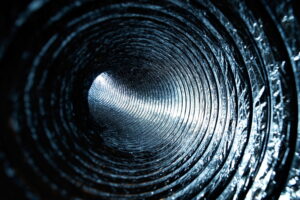 If you’re reading this, it’s because you have worries about the quality of your home’s indoor air. Many homeowners over the past year and a half have developed a new interest in how to combat contaminants that can move through the air around them and their family. The good news is that you have many options when it comes to better indoor air quality, and you also have a great team at AC Comfort to help with installing the best solutions to improve air quality. But with many options comes the difficulty of choice. You want to end up with air quality solutions that do the best job. Where do you start?
If you’re reading this, it’s because you have worries about the quality of your home’s indoor air. Many homeowners over the past year and a half have developed a new interest in how to combat contaminants that can move through the air around them and their family. The good news is that you have many options when it comes to better indoor air quality, and you also have a great team at AC Comfort to help with installing the best solutions to improve air quality. But with many options comes the difficulty of choice. You want to end up with air quality solutions that do the best job. Where do you start?
You may think you need to decide if you want an air filter or air purifier in Houston, TX. But this isn’t the dilemma it may seem.
The Difference Between Air Filters and Air Purifiers
Some terminology upfront. Air filters or air filtration systems are air quality installations that trap particles in the air using media like fiberglass mesh and screens. You already have an air filter on your HVAC system to protect the interior of the cabinet, although it doesn’t do much for air quality. The ones professionals install to boost air quality are integrated into the ductwork.
Air purifiers are powered devices that remove particles in the air without placing any physical barrier against the airflow. Purifiers can work using a variety of methods, but the most common are ionization (which alters the charge of particles so they can be drawn out of the airflow) and UV radiation (which neutralizes or kills organic pollutants).
Air Filters and Purifiers Aren’t a One-or-the-Other Choice
Yes, you can have both air filters and air purifiers in your HVAC system, and many homes do. They work well together if professionals choose them. Some air cleaning systems combine both mechanical filtration and electronic air purification.
Many homes may only need an air filter to handle their indoor air quality needs. It’s always a wise choice to start looking for air filters before turning to purifiers. If the main concern in your home is the circulation of larger contaminants such as dust, lint, and dander, an air filter may be able to take care of everything. In fact, air filters come in strengths that can deal with extremely small pollutants. However, the stronger the filter, the more resistance it places against airflow, so there’s an upper limit on how powerful a filter your home’s HVAC system can handle.
If your house has the most powerful filtration system it can and still has particles that slip through it, adding an air purifier is the next step. Indoor air quality professionals can determine what types of smaller air pollutants circulate through your house (volatile organic compounds, smoke, pesticides, odor molecules, mold spores) and then install the ideal air purification system to target them. Because air purifiers don’t place resistance to airflow, they don’t have the same limits in residential HVAC systems as air filters.
At AC Comfort, Your Comfort Is Our Business! Call us for help with your indoor air quality.

